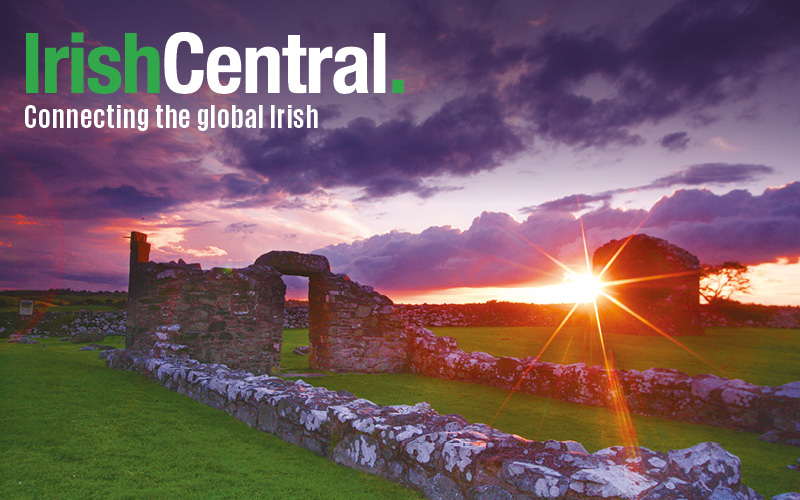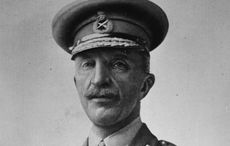Ireland's General Election 2020 campaigning kicks off amidst a number of problems within Ireland
Last week was the beginning of the campaign in the general election here and it turned into a nightmare for the current government. To paraphrase the famous line from the Robert Burns poem, the best-laid plans of mice and men -- and politicians -- often go awry.
Read More: Irish general election called for February 8
Taoiseach Leo Varadkar had been hoping to wait until the early summer before going to the country. But he ran out of road with an upcoming vote of no confidence in Health Minister Simon Harris likely to be carried thanks to ongoing problems in our hospitals.
On one day just over a week ago there were 760 people on hospital trolleys waiting for a bed, an all-time record. Many were elderly, in discomfort, and the resulting media headlines were merciless.
The pressure was too much for the few independent members of the Dáil whose votes were needed to keep the government in power. So rather than wait for a near-certain defeat in the confidence vote, the Taoiseach decided to cut and run. He called the election we all knew was coming (voting will be on February 8) and we are now in the thick of it.
It was not the scenario Varadkar had planned for the launch of the campaign. He had hoped to generate positive headlines about the economy, his Brexit performance and the return of the Stormont administration. Instead, it was all negative.
Read More: Ireland comes down with General Election 2020 fever
The problems in the hospitals have been ongoing for years, but to have to call an election just when the winter overcrowding peak was reached was the last thing the taoiseach wanted. Excuses about the crisis being due to the annual flu outbreak, an aging population and so on don't wash with voters anymore.
It's seen as government failure despite massive increases in health spending. Starting an election campaign amid accusations about sick elderly people in distress on hospital trolleys was a PR disaster.
And worse was to come. Apart from the crisis in the hospitals, the other major issue that makes almost daily negative headlines for the government is the housing shortage and homelessness.
Some progress has been made in the past year but as the campaign got underway last week a tragic incident put the spotlight on this problem as well. A homeless man who was sleeping rough beside a canal in the center of Dublin was badly injured when a mechanical grabber was used to lift his tent into a waste truck.
Although the workers involved from Waterways Ireland (the body which looks after the canal banks) had checked they failed to notice there was someone asleep inside before the grabber lifted the tent. The man, from Eritrea in North Africa, suffered life-changing injuries and is now in hospital. This horrific incident dominated the news and quickly became a political football as opposition politicians pointed to it as further evidence of the government's failure to deal with the housing crisis and homelessness.
Read More: Polls show tough election 2020 road for Leo Varadkar
As if all that was not bad enough, last week also saw a new low reached in the violence between drug gangs here. A teenager who was on the fringes of one of the gangs was murdered in Drogheda, allegedly with a machete.
He was tortured, killed and then dismembered and some of his body parts were discovered subsequently in different locations, including Dublin. A long-running feud between two drug gangs in the area appeared to be out of control.
Varadkar visited Drogheda as the media headlines screamed about the savagery, but his assurances that enough resources were being provided to tackle the drug gangs in the country was less than convincing. As was his assertion that it was incorrect to say that Ireland was becoming a lawless country.
Three other men were shot last week in incidents involving drug gang members but they survived. A student in Cork died after being stabbed in the neck at a house party. All this happened in the first week of the campaign, and Varadkar’s reassurances about law and order sounded feeble and uncertain.
This week-to-forget came immediately after another government PR blunder -- the proposal to commemorate the Royal Irish Constabulary (RIC) which had fought the rebels during the War of Independence a century ago. That government proposal attracted so much fury and ridicule it had to be abandoned.
To his critics it was further evidence of Varadkar’s tin ear and the incompetence of his cabinet.
Read More: Racism is an issue in an Irish general election for the first time
It was all supposed to be so different. Although Varadkar and his Fine Gael-led government had wanted to wait for a summer election, he was well prepared for a campaign when his hand was forced a week ago.
The positive messages were ready. A record number of people in work. Strong growth in the economy. Construction recovering. The Brexit threat of a land border removed. Stormont up and running again.
A record of recovery and success after the disaster of the crash the last Fianna Fail government had overseen ten years ago. A record that deserved to rewarded by another term in government for Varadkar. That was to be the central argument.
As the election campaign kicked off a week ago the government was adding to this positive overall message with announcements on climate change, the health services, and education as well as extra spending in key areas. The promise of tax cuts, as well as more state spending, would be possible because the economy was doing so well, we were told. We would be mad to risk all this and let the Fianna Fail party which had wrecked the country back into power again.
It must have sounded so convincing at campaign strategy meetings in the Fine Gael HQ, but then last week happened and the bad news headlines took over, drowning out anything else. It was reminiscent of the famous line British Prime Minister Harold Macmillan came out with years ago when he was asked about the things that can bring down a government. "Events, dear boy, events," was Macmillan's reply.
Read More: No one knows who will win the Irish election
The depth of the challenge facing Varadkar was revealed last weekend when a Sunday Times opinion poll put Fianna Fail a staggering 12 points ahead of Fine Gael. In fact the nationwide poll had been taken during the RIC controversy which -- rightly or wrongly -- had annoyed so many people, and it was concluded the day before the election was called. That could have skewed the result.
On the other hand, the polling was done before last week's succession of bad news stories. Whatever way you look at it, this is very worrying for Varadkar and Fine Gael.
What it shows is that the electorate has already banked the economic recovery and the Brexit outcome. Eaten bread is soon forgot.
In spite of the solid record, voters continue to be annoyed by the housing situation, by lines of patients on hospital trolleys and, after last week, the failure to deal with the drug barons and their vicious gangs. Plus there are all the other irritants that make people dissatisfied with the government -- the soaring rents, the long commutes as people are forced to live far from where they work, the cost of childcare and many other things, even last week's traffic chaos in Dublin caused by the tractorcade of protesting farmers.
The Fianna Fail corpse has risen from the grave, the biggest comeback since Lazarus. Much to the horror of Fine Gael, Fianna Fail could well get back into power.
It's not so much that people have forgiven them for what they did to the country a decade ago. It's more that after nine years of Fine Gael-led governments, the last few with Varadkar at the helm, people are impatient for real progress they can feel in their daily lives.
They want change. And Fianna Fail, despite its history, would be a change.
Read More: Why Ireland’s election process is better than the US
Of course, it's much too early to predict the outcome. It's more than possible that Fine Gael will get its economic message through as the campaign goes on and will be able to convince people that even in the problem areas of housing and health it is on the right track and just needs more time. This won't be easy, even though the facts are on the government's side.
On housing, both private and social, construction has taken off again and this is backed up by the figures. This year we will build well over 20,000 units.
We need to up this to more than 30,000 a year for the next decade to solve the problem, but at least we are heading in the right direction. Affordability is still a problem but the increasing supply will solve that over time, as well as lowering rents.
As we pointed out recently, the number of homeless here who are in emergency accommodation (just over 10,000) is proportionately much lower than in most other countries in Europe despite the decimation of our construction sector here after the crash. And the number of rough sleepers (like the man in the tent at the canal) is very low, less than 100 in Dublin on the last count, much lower than the levels in other European cities.
On health, the media keeps up an endless moan fest about patients languishing on trolleys partly because it makes emotive copy which sells papers and generates clicks online. Blaming the government for the health crisis is relentless.
But changing the government won't necessarily make much difference. Vested interests within the health service here are a big part of the problem.
The fact is health spending per head of the population in Ireland is one of the highest in the world. And it has increased rapidly in recent years, now standing at over €20 billion a year. Over 20,000 new staff have been added to the service in the past five years, more than reversing the cuts made after the crash.
So why is our health service not functioning as effectively as we want? The truth is it's not as bad as we think.
There are over-crowded A&E departments in the much-vaunted NHS in the U.K. as well, and in many other rich countries, as populations age and health care becomes ever more advanced and expensive. It's a complex problem. It's far easier to blame the government than to think too much about it.
It's that facile negative narrative -- both on health and housing -- that the government will have to combat during this campaign if it is to get back into power again. It won't be easy. But it's still all to play for.
Read More: Sinn Féin call for a United Ireland referendum by 2025 ahead of general election




Comments